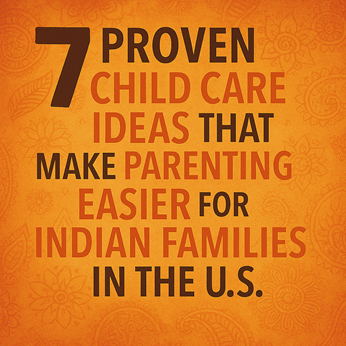More About Introduction Of Solid Foods
The most appropriate time to introduce solid foods for babies is when they are about 4 to 5 months old; at this time the baby is able to hold his/her head in a steady or upright position and is able to sit well when supported. It is also the time when the baby stops using his/her tongue to push the food out of the mouth and learns how to swallow it.
Some more points about introduction of solid foods:
• When you first introduce solid foods do it very gradually; first nurse or bottle-feed your baby and then give him/her 1 or 2 teaspoons of a pureed solid food. Starting on cereal means giving solids in a semi-liquid consistency by mixing cereal with breast milk or formula.
• Always start off your baby with solid foods once a day; give 2 meals a day when the baby is about 6 to 7 months and start off on 3 meals at the age of 8 months. Also at the age of 8 months you could give a combination of breast milk or iron fortified milk, iron fortified cereal, yellow, orange and green vegetables, fruit and small amount of protein in the form of poultry, lentils, tofu and meat.
• Want to get your baby to be interested in solid foods? Create the curiosity and liking by allowing him/her to smell the food as he/she tastes it. Always make it a habit to feed the baby with a soft-tipped plastic spoon; never add cereal into the baby’s bottle as then the baby will not make a connection that solids are to be eaten sitting up with a spoon.

• There is a popular misconception among many mothers that it is always best to start solid foods with a rice cereal; it is true that it triggers no allergic reaction, but there is no reason why you cannot start with wheat cereal or some other foods like pureed meat, pureed sweet potatoes, squash, applesauce, bananas, peaches, and pears.
• Some are of the opinion that vegetables are to be offered to babies before fruits; however evidence shows that it is better to offer fruits first to babies; most babies that have had fruit first create a liking for vegetables also.
• There is no reason why you should shy away from giving meat to infants if you are a meat-eater; you could start on pureed chicken first. Studies show that babies that eat meat earlier have a higher intake of iron and zinc that helps in their growth.
• Lastly babies should learn to enjoy vegetables and fruits, but there is no evidence that they should be given bland food; offer your child adventurous options by using mild spices with a pinch of salt helps the baby to appreciate all tastes and get used to them.
Image Courtesy: Google
Take the next step toward your goals
Share your requirement and find the best care providers in your area
-
Looking for a caretaker’s job? Build your profile and get in touch with families in your vicinity.
-
Discover nannies, babysitters, cooks, housekeepers, pet sitters, and elder care under one roof.
-
Get all the support you need to run a successful care center.
-
Search for appropriate centers near you depending on your needs.
Care Corner Insights: Blog Library

What’s the Best Way to Find a Trustworthy Indian Nanny in Fremont, CA ?
Hiring a nanny for your family is a big decision, especially when you want someone who understands your cultural values and parenting style. If you’re looking for a trustworthy Indian nanny in Fremont, CA, here are some effective strategies to make t

7 Proven Child Care Ideas That Make Parenting Easier for Indian Families in the U.S.
Raising children in the U.S. comes with a unique blend of opportunities and challenges—especially for Indian families trying to balance cultural values, busy work schedules, and daily childcare responsibilities. These seven proven childcare ideas can

9 Must-Know Tips for Hiring a Nanny in San Jose
Finding the right nanny for your family in San Jose can feel like a huge task — especially when you want someone who is trustworthy, experienced, and a perfect match for your child’s needs. Whether you’re a first-time parent or looking to replace you

10 Revolutionary Child Care Tips Every Indian Family in California Should Know in 2025
1. Bring India Home — Every Day Your children might grow up in California, but they can still grow with India. Let Indian traditions live inside your home — evening prayers, storytelling in your native language, or cooking regional dishes together.

Deep Cleaning Your House: Room-by-Room Checklist for a Thorough Clean
A sparkling clean home isn’t just about looks—it’s about health, comfort, and peace of mind. Whether you’re prepping for a festival, hosting guests, or just tired of the clutter, a deep clean can transform your space. But where do you start? Here’s a

What are Senior Apartments? Experts Explain Independent Living for Older Adults
As we age, our needs and lifestyles evolve—but one thing remains constant: the desire for independence. Senior apartments are designed precisely with this in mind, offering older adults a living arrangement that balances freedom with comfort, safety,

Baby Sleep Problems: What is Sleep Regression and How to Handle It
If you’re a parent, you know that baby sleep is one of the greatest mysteries of life. One day your little one is snoozing like an angel, and the next day they’re suddenly waking up every hour, fussing, or refusing to nap. Before you panic, there’s a

Daycare Admissions in Cary, NC for New NRI Families: Documents, Health Records, and Start Dates
Moving to a new country is exciting but also comes with many responsibilities—especially when it comes to finding the right daycare for your little one. For new NRI (Non-Resident Indian) families settling in Cary, NC, understanding the daycare

Overnight Babysitters in Bellevue, WA for Business-Travelling NRI Parents: Safety & Policies
For many NRI parents living in Bellevue, WA, frequent business trips are a reality. While traveling, one of the biggest concerns is ensuring your children are safe, cared for, and emotionally supported during overnight stays. Overnight babysitters ca

Indian Home-Style Cooks in Queens, NY: Tiffin-Style Weekly Meal Prep from Your Kitchen
Queens, NY, is home to one of the most diverse food cultures in the country, and Indian cuisine holds a special place among families looking for authentic, comforting meals. While restaurant takeout is convenient, nothing compares to the taste and nu